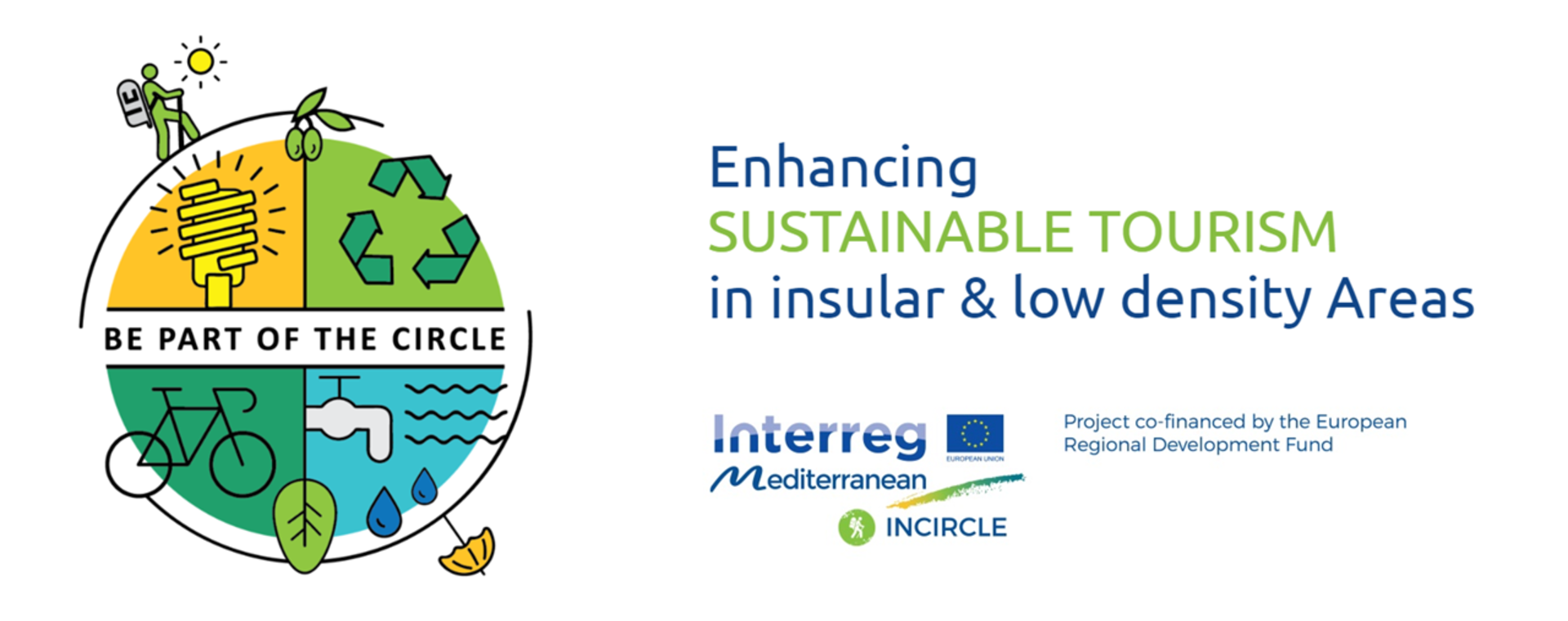14/04/2022
INCIRCLE: new planning tools to reduce the environmental impact of tourism
The Interreg MED project, coordinated by Area Science Park, aims to establish good sustainable tourism practices based on the circular economy model. Six European countries are taking part.
Il Parco
To what extent does tourism have an impact on vulnerable destinations? What policies can be adopted to reduce the environmental footprint of tourism flows? These are just some of the questions INCIRCLE – a three-year Interreg MED project co-financed by the European Regional Development Fund – has been working on. The project is coordinated by Area Science Park and brings together 14 partners from six different Mediterranean countries (Italy, Greece, Spain, Albania, Malta and Cyprus).It aims to reduce pollution caused by tourism, preserve the quality and availability of natural resources and improve the quality of life of residents and tourists, applying the principles of a circular economy to the tourism sector.
INCIRCLE, with a budget of over 3 million euros, aims to improve the sustainability and attractiveness of the Mediterranean islands with a low population density, and coastal tourist destinations that are adversely affected by seasonal tourist flows.
The environmental footprint of tourism activities shows increased emissions, wasted water, excessive waste production, increased levels of wasted energy and high levels of noise. In these territories, there is therefore a need for improved, integrated sustainable tourism planning to preserve and leverage non-renewable resources.
The aim of the project is to provide decision-makers with concrete tools and testing opportunities to improve their capacity in terms of sustainability assessment and planning, so as to take advantage of new funding and create concrete opportunities to replicate the results. For this purpose, the INCIRCLE Knowledge Platform was created. The platform is freely accessible to policymakers and tourism stakeholders and offers a set of solutions that have been collected and tested in the Mediterranean area. It is also a tool for sharing reference models that have proved successful in other contexts. The platform also aims to classify and compare circular tourism policies and practices through the Circular Tourism Self Assessment Tool. This online tool consists of a survey of around fifty questions put together by one of the project partners, the Sant’Anna School of Advanced Studies in Pisa. It is a management and monitoring tool for assessing the impact of tourism from the point of view of a circular economy, both at the destination level (Circular Tourism Destination Tool) and at the tourism industry level (Circular Tourism Industry Tool).
The Circular Tourism Self Assessment is based on four capitals (natural, social, built and human) and on three levels (tourism destination, tourism industry and networking, composed of the interactions that nourish sustainability and circularity between a tourism destination and a tourism industry). It includes the five principles of a circular economy (Reduce, Regenerate, Rethink, Innovate and Revalue).
The test phase involved five pilot cities (Palma, Gozo, Himara, Rethymno and Larnaca) and five territories (Balearic Islands, Malta, Albania, Crete and Cyprus) and the aim was to develop strategies and local action plans containing concrete measures for the transition to sustainable and circular regional tourism with the active involvement of stakeholders.
INCIRCLE partners: Area Science Park (lead partner), Medcities (Spain), Civinet (Greece), Larnaka – Famagusta District Development Agency (Cyprus), Albanian Institute of Transport (Albania), Energy and Water Agency (Malta), Region of Crete – Directorate of Environment and Spatial Planning (Greece), Himara Municipality (Albania), Palma City Council (Spain), Regional Government of the Balearic Islands – Direction of Environmental Education, Environmental Quality and Waste (Spain), Larnaka Municipality (Cyprus), Ministry for Gozo (Malta), Sant’Anna School of Advanced Studies (Italy) and Municipality of Rethymno (Greece).